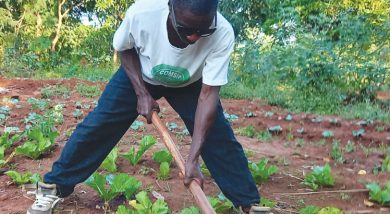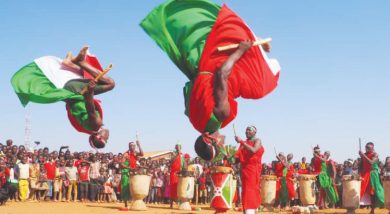Nyasa Guruz; What Killed the dream?
In 2004, a youthful and funky dancehall music ensemble came on the scene. The all-sibling group called themselves Nyasa Guruz.
The music outfit comprised Jinke, Badde, Blakseed, Blakjak, Pappa, Liko Bwai and Zep who were blood brothers and cousins.
Between 2004 and 2010, the exploits of Nyasa Guruz were simply unbeatable. The success of their releases and the heights they hit on the road during their tours set a new bar for many musical outfits at the time.
In an interview with Chill this week, Jinke, real name Jimmy Kwangwani, said the group’s foray was made easy because they were all young, full of energy and doing the music just for fun.

At their peak, Nyasa Guruz were the go-to act among event organisers, owing to the pull they commanded. They performed alongside South African groups such as Bricks and Demin during the Fanta Mega Show and Sprite Shows respectively.
Said Jinke: “Those shows stand out as some of our highlights. And we used to be paid handsomely then.”
Blackseed: “Those were proud moments for all of us. What we did changed the landscape of music and history.”
BlakJak said another factor that was crucial to their establishment and sudden success is the understanding they had being family.
“Being part of the family was like an automatic qualification to be part of the group. If you had a certain skill it was even as a plus. Along the way, we incorporated a few guys, who were close friends, so it did not complicate things in any way,” he said.
The group leader Pappa said they started by imitating artists such as Jamaican Buju Banton, MC Hammer, LL Cool J, Shabba Ranks, Bennie Man, locally Teargas, Dr Lizard, Anne Matumbi, Vic Marley, San B and Taky T.
Said Pappa: “We had a radio set at home which had a microphone facility. We could record songs from different artists. After some time we developed the skill of composing our own songs. That preoccupation intensified when we got to secondary school.
“During weekends we used to frequent the Blantyre Youth Centre and French Cultural Centre then, where we would participate in rap and ragga contests.”
Blackseed chipped in: “Because of the numbers and versatility that we enjoyed, sometimes we could divide ourselves and participate in these contests as individuals. We would dominate them all owing to the exposure we had.”
Pappa said being siblings had its own downside as there were still elements of lack of respect within the set-up.
“But all the same, it was good to have that bond. It allowed us even to try a new song as we were sleeping in our room,” he said.
The success of Nyasa Guruz hinged on their three albums Nthawi,Tikudikira and Tabweranso. But it was their chart-topping compositions such as Tumpale, Nthawi, Suzie and Fisi which made the Blantyre-based outfit a household name.
BlakJak said: “There was a guy working at MBC, Kondwani Bright Simbota. He invited us to come and record a song for free. The idea of having our song recorded in the studio and playing on the radio gave us the momentum to do more.
“Then we got another offer from Dynamike who gave us a similar offer after being impressed with our act. We then recorded Tumpale. We then recorded our first album Nthawi. The rest is history.”
Since their last album Tabweranso, which came in 2010, the group’s fortunes hit a low. Their subsequent singles Lero Ndi Lako, Ukamalira and Akali Moyo Elube did little to revive their fading fortunes. But after the initial success, what went wrong with the group?
Jinke said ironically what brought about their success is also what led to their downfall.
“Because we used to do music for fun, we did not think beyond that to get more established. Added to that, along the way most of us got into other careers, started families which further limited our time to come together and do music,” he said.
The group’s leader also blames the transition from boys to men meant a lot of things had to change within their set-up, which also saw others relocating from Malawi. He said lack of vibrant technology tools then proved a challenge to their music pursuits.
But is there any way back for the group? Pappa said: “We have the songs, plans and we still believe it will work out once we are together as before.”





